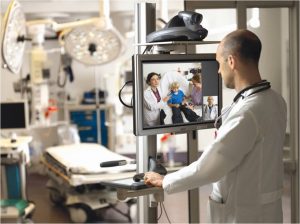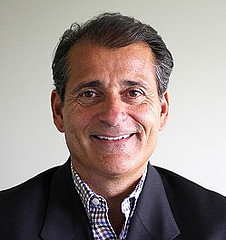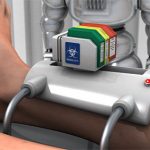Telemedicine for Assessing Levels of Consciousness in Comatose Patients: How Does it Compare to Bedside Assessment?
Effective care for comatose patients in intensive care units (ICUs) depends on proper intervention based on reliable assessment. Researchers recently conducted a study at Mayo Clinic Hospital in Arizona to compare the effectiveness of using telemedicine to assess levels of consciousness in comatose patients with standard bedside assessment.
Proper intervention relies on the ability to recognize changes in a comatose patient’s clinical status quickly. This had usually meant that, in order to complete an assessment, the practitioner needed to be in the same room. Advanced medical technology is changing all that and robotic medicine now allows clinicians to assess patients from across the hospital or from across the world.
Telemedicine has been around since the 1960s, when NASA built telemedicine technology into astronauts’ suits. Prior to this technology, astronauts had to rely on crewmates for an accurate diagnosis. Monitors in the suits sent biometric information about the wearer back to earth for assessment.
Computers have revolutionized telemedicine and the internet helps doctors assess patients living in remote places. This is especially helpful for patients living in underserved areas.
Despite major advances, many still worry about the effectiveness in using this technology for the most critically ill patients. A new study published in Telemedicine and e-Health should help to dispel this fear, with researchers showing that robotic telemedicine can be used successfully to complete assessments in comatose ICU patients.
Testing the Reliability of Telemedicine in the Assessment of Levels of Consciousness
Researchers enrolled 100 patients from Mayo Clinic Hospital in Arizona into the study, which occurred over a 15-month timeframe. Mean age of patient participants was 70.8 years. On average, each examination took just over 5 minutes.
Sixteen medical doctors also participated by using two scoring systems, the Glasgow Coma Scale (GCS) and the Full Outline of UnResponsiveness (FOUR) score, to assess patients’ levels of consciousness. The researchers randomly assigned two practitioners to each patient; one doctor used real-time audio and a visual robotic telemedicine system to perform the assessment and the other clinician conducted an assessment at the patient’s bedside. Each used GCS and FOUR scales.
The researchers used paired t-test and Pearson correlation coefficient (PCC) to compare the GCS and FOUR scores between bedside and  remote physician.
remote physician.
Differences in GCS and FOUR scores between remote and beside assessment were small. The mean Glasgow Coma Scale score at bedside was 7.5 while the mean GCS score for the remote examination was 7.23. Scores were comparable in the FOUR total scores too, with a mean bedside score of 9.63 and a mean remote score of 9.21.
The researchers also asked the clinicians about their overall satisfaction and ease of use. Ninety-five percent of remote providers rated GCS and 89% rated FOUR score as good (4/5).
Conclusions
The study is the first to evaluate the effectiveness of telemedicine in assessing patients with depressed levels of consciousness. The results suggest that doctors can reliably assess levels of consciousness in comatose patients using existing robotic telemedicine technology. Healthcare providers could adopt telemedicine to help evaluate critically ill patients in neurologically underserved areas.
“This is good news in many ways,” states lead author of the study, Amelia Adcock, M.D, in a press release issued by Mayo Clinic. “We use telemedicine frequently when evaluating acute stroke patients. This study suggests yet another way telemedicine can enhance patient care. There is a shortage of intensive care unit providers and facilities with round-the-clock patient coverage. Telemedicine can provide a way to ameliorate this shortage and improve early evaluation of critically ill patients.”
Source
http://online.liebertpub.com/doi/10.1089/tmj.2016.0225
Frank Magliochetti is Managing Partner for Parcae Capital
-
North Andover, Massachusetts
This column of posts is directed at the Healthcare Industry. Frank plans to release new sites dedicated to the industry. Frank currently assists companies who are building, restructuring, transforming and resurrecting there business’s. An example of his client base are, Xenetic Biosciences , IPC Medical Corp, Just Fellowship Corp, Environmental Services Inc., Parsons Post House LLC, ClickStream Corporation as well as having a business talk radio show; The Business Architect on the URBN network.







